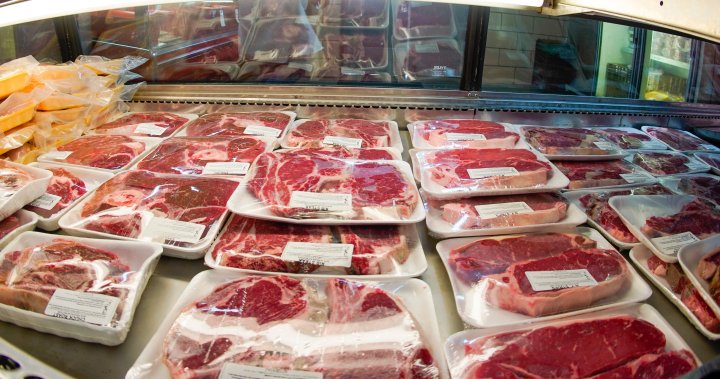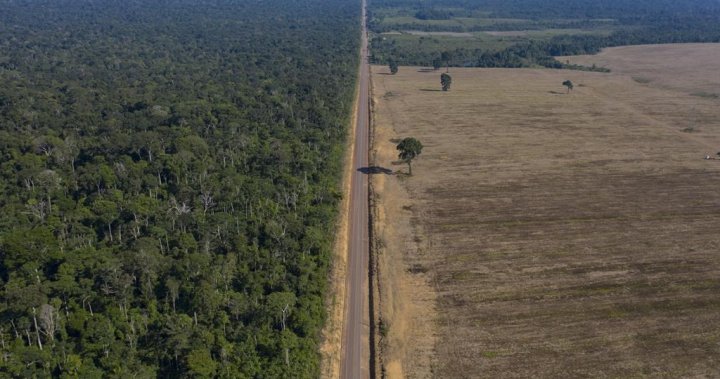Canada’s federal government as well as organizations representing some the nation’s beef producers warn a decision south of the border about “Product of USA” labels on meat, poultry and eggs could disrupt supply chains.
The United States Department of Agriculture announced Monday a final rule on conditions for when voluntary “Product of USA” or “Made in the USA” labels may be used, stating they will be allowed for meat, poultry and egg products only when they are derived from animals born, raised, slaughtered and processed in the United States.
Agriculture Secretary Tom Vilsack says in a news release the rule, which takes effect in 2026, will ensure that when consumers see the label, they can know that every step involved, from birth to processing, was done in America.

But Canada’s Agriculture Minister, Lawrence MacAulay, and International Trade Minister Mary Ng say in a joint statement they’re disappointed the rule does not appear to take into account concerns they’ve raised related to the “unique and important trading relationship” between the two countries.
They say the “meat and livestock sectors in Canada and the United States work closely together” and that Canada intends to raise the issue during the agriculture ministers trilateral meeting with United States and Mexico scheduled to take place in Colorado later this month.
Breaking news from Canada and around the world
sent to your email, as it happens.
Breaking news from Canada and around the world
sent to your email, as it happens.
The rule is a sharp change from current policy, which allows voluntary use of such labels on products from animals that have been imported from a foreign country and slaughtered in the U.S., as well also on meat that’s been imported and repackaged or further processed.
“Today’s announcement is a vital step toward consumer protection and builds on the Biden-Harris Administration’s work to bolster trust and fairness in the marketplace where smaller processors can compete,” Vilsack said in the news release after announcing the final rule Monday at the National Farmers Union Annual Convention in Phoenix, Ariz.
The USDA release said the final “Product of USA” rule is supported by petitions, as well as thousands of comments from stakeholders, and data from a nationwide consumer survey. It also said the “Product of USA” or “Made in the USA” label claim will continue to be voluntary.

The joint statement from MacAulay and Ng said Canada is “reviewing the final rule carefully.”
“Our indispensable relationship allows producers, processors and consumers on both sides of the border to benefit from efficient, stable and competitive markets, while ensuring a reliable supply of high-quality products,” the statement said.
“Canada remains concerned about any measures that may cause disruptions to the highly integrated North American meat and livestock supply chains.”
A statement from the Canadian Cattle Association, which represents beef farms and feedlots, called the rule “the most onerous standard in the world.”
“It is crucial to address any issues that threaten or diminish cattle and beef trade between Canada and the U.S.,” CCA president Nathan Phinney said in the statement.
“We are very concerned that the rule will lead to discrimination against live cattle imports and undermine the beneficial integration of the North American supply chain.”
The voluntary labeling rules are different from country-of-origin labels, known as COOL, which required companies to disclose where animals supplying beef and pork are born, raised and slaughtered. That requirement was rolled back in 2015, after international trade disputes and a ruling from the World Trade Organization.
— With files from AP
© 2024 The Canadian Press





